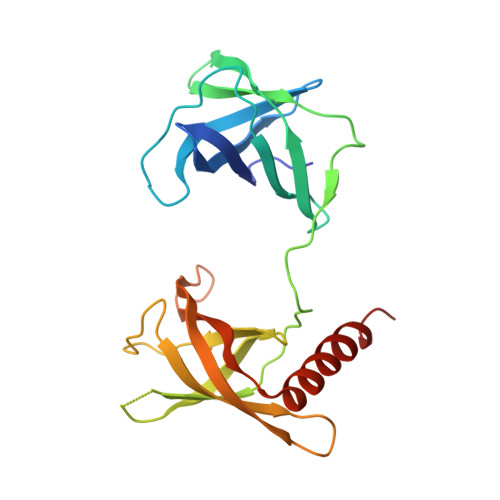MotI (DgrA) acts as a molecular clutch on the flagellar stator protein MotA inBacillus subtilis.
Subramanian, S., Gao, X., Dann 3rd., C.E., Kearns, D.B.(2017) Proc Natl Acad Sci U S A 114: 13537-13542
- PubMed: 29196522
- DOI: https://doi.org/10.1073/pnas.1716231114
- Primary Citation of Related Structures:
5VX6 - PubMed Abstract:
Stator elements consisting of MotA 4 MotB 2 complexes are anchored to the cell wall, extend through the cell membrane, and interact with FliG in the cytoplasmic C ring rotor of the flagellum. The cytoplasmic loop of MotA undergoes proton-driven conformational changes that drive flagellar rotation. Functional regulators inhibit motility by either disengaging or jamming the stator-rotor interaction. Here we show that the YcgR homolog MotI (formerly DgrA) of Bacillus subtilis inhibits motility like a molecular clutch that disengages MotA. MotI-inhibited flagella rotated freely by Brownian motion, and suppressor mutations in MotA that were immune to MotI inhibition were located two residues downstream of the critical force generation site. The 3D structure of MotI bound to c-di-GMP was solved, and MotI-fluorescent fusions localized as transient MotA-dependent puncta at the membrane when induced at subinhibitory levels. Finally, subinhibitory levels of MotI expression resulted in incomplete inhibition and proportional decreases in swimming speed. We propose a model in which flagellar stators are disengaged and sequestered from the flagellar rotor when bound by MotI.
- Department of Chemistry, Indiana University, Bloomington, IN 47405.
Organizational Affiliation:

















